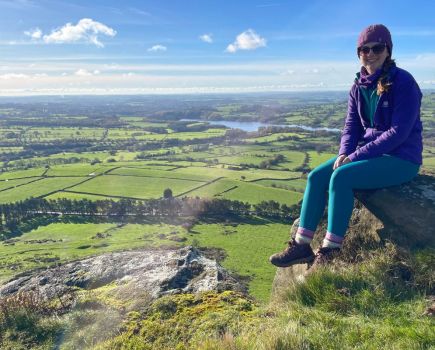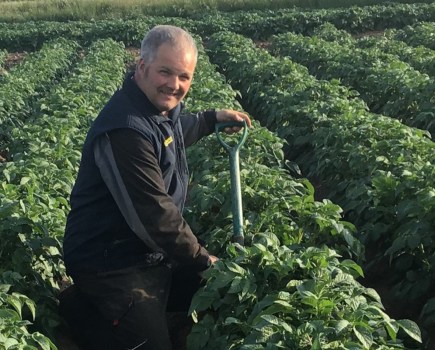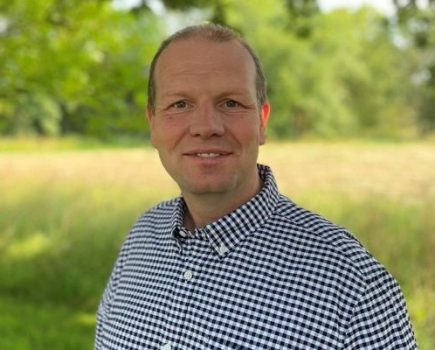 As I write this war has just broken out in Ukraine and it feels unreal that such a thing can be happening. Impossible that in 2022, another utterly insane despot has unleashed his forces within Europe and my heart, along with all in the farming community, goes out to all of those caught in the middle of it. The world feels like it’s gone mad.
As I write this war has just broken out in Ukraine and it feels unreal that such a thing can be happening. Impossible that in 2022, another utterly insane despot has unleashed his forces within Europe and my heart, along with all in the farming community, goes out to all of those caught in the middle of it. The world feels like it’s gone mad.
Like many, one of my first thoughts was probably a selfish one but it was to top up the heating oil. As the quotes came in, I quietly chastised myself for not ordering it at the weekend as I’d intended – that lapse added 16% to my bill. That was painful enough so I can imagine red diesel orders are eyewatering in comparison. With spring just round the corner, the rapidly inflating fuel prices brings a real strain to agricultural businesses on top of already soaring fertiliser costs. Even with a surge in wheat prices, many businesses will be looking at their costs and digging deep to cover their overheads.
Often it takes a crisis – financial or personal – to really look hard at things and make changes happen. It’s always more comfortable to stay as we are. And sometimes change is forced upon us. That’s something we really don’t want to happen so it’s critical to understand where policy decisions from government are coming from.
With this in mind, I joined a recent Westminster Energy, Environment and Transport Forum policy conference which was discussing the next steps for policy and regulation in relation to natural capital protection and restoration. That included implementing the Dasgupta Review, which looked at the economics of biodiversity, and the newly created Office of Environmental Protection (OEP) priorities.
The findings of the Dasgupta Review are of real importance to all of us in farming. One of his conclusions is that: “Our economies are embedded within Nature, not external to it. While most models of economic growth and development recognise that Nature is capable only of producing a finite flow of goods and services, the focus has been to show that technological progress can, in principle, overcome that exhaustibility. This is to imagine that, ultimately, humanity is ‘external’ to Nature. The Review develops the economics of biodiversity on the understanding that we – and our economies – are ‘embedded’ within Nature, not external to it.”
This realisation that our whole economy is underpinned by pillars of ecosystem health has brought natural capital and nature-based solutions right to the forefront of policy-making across governmental departments. Dasgupta says the economy is a wholly-owned subsidiary of Nature and the Government’s policy agenda has now moved firmly from Nature protection to Nature Recovery in the 25-year Environment Plan.
Why is this important? Because land-owners and farmers are pivotal to this agenda of recovery and gain and in this forum meeting there was talk about carrots and sticks as a means of achieving these goals.
I think it’s fair to say the details of ELMs and SFI aren’t being greeted with widespread enthusiasm from the farming community and that may lead to a lot of growers deciding not to participate. If SFI is the carrot, then just how the stick will be wielded by the OEP is looking just as unclear. The recent debacle with spreading organic manures really shows that there’s not a lot of joined up thinking going on between government departments and a real risk that the many will get penalised for the failings of the few.
What is pretty obvious is that those who are already making nature recovery and biodiversity gains are more likely not to meet the additionality required for government funding and this is where private markets are anticipated to step in and provide the rewards.
Viewing natural capital as an asset to trade comes easier to some than to others, whether that’s because of attitude to risk or a more corporeal feeling that Nature shouldn’t be capitalised. There are a lot of opposing views on the subject. But what does make sense to me is to get to grips with your own baseline figures – find out what your emissions are and how much carbon is being sequestered. Like it or not, when government starts to view natural capital as an item on the economy’s balance sheet, businesses have little choice but to follow unless waiting for the stick to force the issue – and that’s never a good place to be in.
Personally I really dislike the call to ‘take control’, perhaps it’s too reminiscent of the division wrought by Brexit but mostly because I believe most CPM readers are weighing up their options already and getting to grips with the best way to navigate their businesses through this time of phenomenal change in agriculture. Even though the answers will likely be different for every farm, it’s why we’ve introduced a ‘Sustainable farming’ section to magazine. Here we’ll keep exploring new ways of thinking, the concepts behind them and showcase farmers who are making the change. More now more than ever, everyday is a school day and there’s an awful lot still to learn.
Based in Ludlow, Shrops, Lucy de la Pasture has worked as an agronomist, while among the Twitterati, she’s @Lucy_delaP.
lucy@cpm-magazine.co.uk




